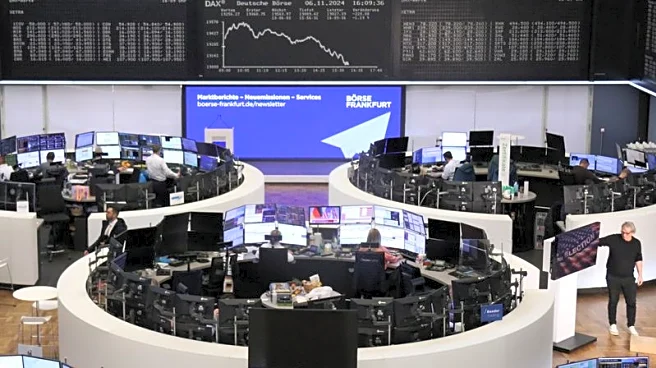What's Happening?
The global cleantech manufacturing sector is experiencing increased trade barriers and costs, as countries aim to enhance domestic production of clean energy technologies. According to BloombergNEF, China
dominates the manufacturing capacity for solar and battery supply chains, hosting over 70% of production capacity in major segments. Developed and emerging economies are implementing higher import duties on cleantech products to foster local value creation and attract foreign investment. G20 countries have allocated $250 billion in subsidies for clean technology manufacturing, with the U.S. leading in commitments despite policy changes. The EU and Japan are also investing in domestic manufacturing, but face challenges due to high costs and low local demand.
Why It's Important?
The rise in trade barriers and costs in cleantech manufacturing has significant implications for the global energy transition. As countries focus on domestic production, the integration of supply chains and economies of scale are affected, potentially delaying progress towards climate goals. China's dominance in manufacturing capacity poses challenges for other nations trying to build their own industries. The allocation of subsidies by G20 countries highlights the importance of government support in overcoming these barriers. However, the effectiveness of these initiatives is limited by market conditions and high capital requirements, which may hinder the growth of local manufacturing.
Beyond the Headlines
The global tug-of-war over cleantech manufacturing reflects broader geopolitical and economic dynamics. The emphasis on domestic production is driven by energy security concerns and the desire to reduce dependency on foreign imports. This shift may lead to increased competition and innovation in the sector, but also risks exacerbating trade tensions. The focus on local manufacturing could impact global supply chains, affecting the availability and cost of clean energy technologies. As countries navigate these challenges, the balance between fostering domestic industries and maintaining international cooperation will be crucial for achieving sustainable energy goals.











